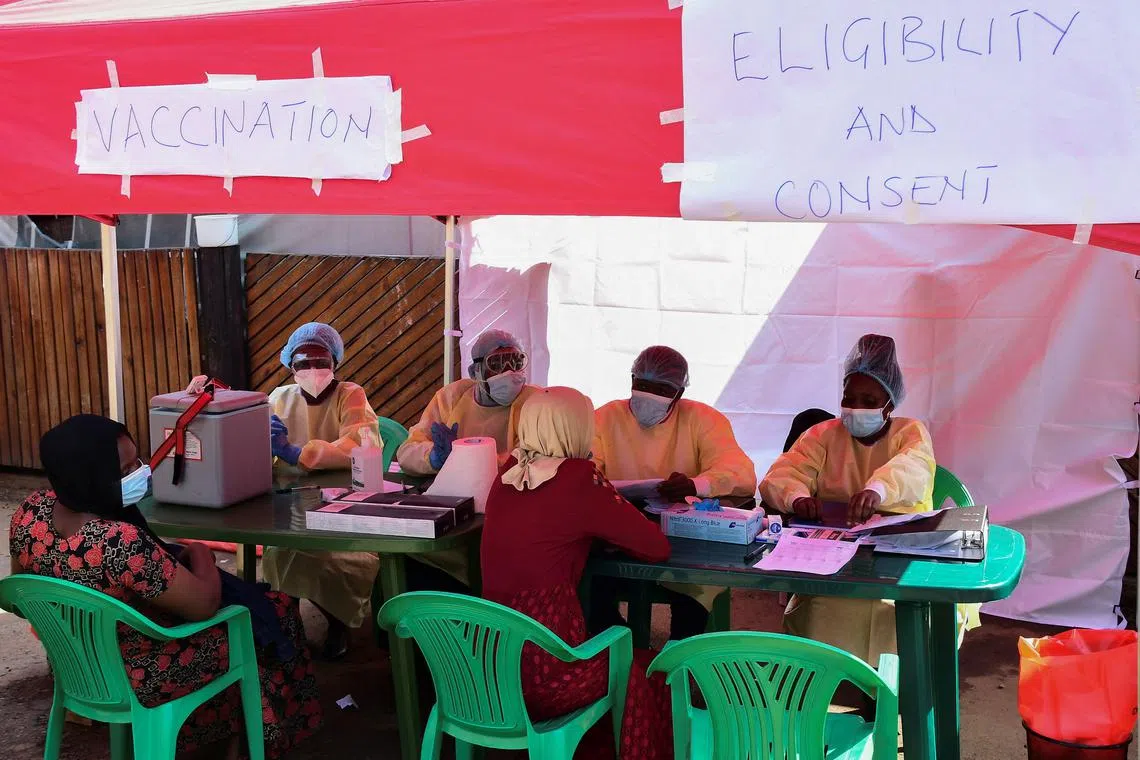Uganda Launches Groundbreaking Ebola Vaccine Trial Amid Sudan Strain Outbreak
Uganda has initiated a trial vaccination program targeting the Sudan strain of Ebola, a move hailed as a critically important step in combating the deadly virus. The announcement comes as the number of confirmed cases in the country rises to three, according to the world Health Organization (WHO).
The outbreak was first declared last week in Kampala, uganda’s capital, after a nurse tested positive and tragically succumbed to the disease on January 29. Two additional cases have since been confirmed, both from the family of the deceased, as reported by Ministry of Health spokesperson Emmanuel Ainebyoona.
In a post on the X platform, Matshidiso Moeti, WHO Director for Africa, revealed that Uganda has also commenced a clinical trial for a vaccine specifically designed to combat the Sudan strain. “This marks a major milestone in public health emergency response and demonstrates the power of collaboration for global health security,” Moeti stated. “If proven effective, the vaccine will further strengthen measures to protect communities from future outbreaks.”
Currently, there is no approved vaccine for the Sudan strain of Ebola. The existing vaccine, rVSV-ZEBOV, is effective against the Zaire strain, which has been responsible for recent outbreaks in the neighboring Democratic Republic of Congo.
The trial is being conducted by the Makerere Lung Institute, a leading research organization in Uganda. bruce Kirenga, the institute’s head, confirmed that the vaccine was developed by the International Aids Vaccine Initiative (IAVI) and that the institute has received approximately 2,460 doses. The trial will focus on vaccinating contacts of confirmed cases, a strategy aimed at curbing the spread of the virus.
Ebola is a high-fatality disease characterized by symptoms such as haemorrhage, headache, and muscle pains. The virus spreads through contact with infected bodily fluids and tissue,making containment efforts critical.
Key Details at a Glance
| Aspect | Details |
|————————–|—————————————————————————–|
| Outbreak Location | Kampala, Uganda |
| Confirmed Cases | 3 |
| Vaccine Strain | Sudan strain of Ebola |
| trial Organization | Makerere Lung Institute |
| Vaccine Developer | International Aids Vaccine Initiative (IAVI) |
| Doses Received | 2,460 |
This trial represents a beacon of hope in the fight against Ebola, particularly for regions vulnerable to the Sudan strain. As Uganda takes this bold step, the global health community watches closely, anticipating results that could reshape future outbreak responses.
For the latest updates on this developing story, join ST’s Telegram channel and stay informed.
Groundbreaking Ebola Vaccine Trial in Uganda: A Conversation with Dr. Jane Mwangi
Uganda has taken a critical step in the fight against the deadly Sudan strain of Ebola by launching a groundbreaking vaccine trial. This initiative comes amid a rising number of confirmed cases in the contry. To delve deeper into this development, we spoke with Dr. Jane Mwangi, a leading expert in infectious diseases and global health. Here’s what she had to say.
The Significance of Uganda’s Ebola Vaccine Trial
Senior editor: Dr. Mwangi, Uganda has initiated a vaccine trial targeting the Sudan strain of Ebola. Why is this trial so significant in the global fight against the virus?
Dr. Jane Mwangi: This trial is a monumental step forward as,until now,there has been no approved vaccine for the Sudan strain. The existing vaccine, rVSV-ZEBOV, is effective against the Zaire strain but not this one. If accomplished,this trial could provide a much-needed tool to combat future outbreaks,especially in regions vulnerable to this strain.
How the Vaccine Trial Works
Senior Editor: Can you explain how the trial is being conducted and who is involved?
Dr. Jane Mwangi: The trial is being led by the Makerere Lung Institute, a highly respected research organization in Uganda. They’ve received approximately 2,460 doses of the vaccine, developed by the International AIDS Vaccine Initiative (IAVI). The focus is on vaccinating contacts of confirmed cases, which is a proven strategy to curb the spread of the virus. This method, known as “ring vaccination,” was highly effective during the Zaire strain outbreaks.
Challenges in Containing the Sudan Strain
Senior Editor: what are the main challenges in containing the Sudan strain of Ebola?
dr. Jane Mwangi: Ebola is a highly contagious and deadly disease, and the Sudan strain is no exception. The virus spreads through contact with infected bodily fluids, making containment efforts extremely challenging. Additionally, the lack of an approved vaccine for this strain has left communities highly vulnerable. This trial is crucial not only for developing a vaccine but also for improving our overall response strategies.
The Role of the Global Health Community
Senior Editor: How has the global health community responded to this trial?
Dr.Jane Mwangi: The global health community is watching this trial closely. Matshidiso Moeti, WHO Director for Africa, has called it a “major milestone in public health emergency response.” The collaboration between local and international organizations, such as the Makerere Lung Institute and IAVI, demonstrates the power of global partnerships in addressing health crises.
What This Means for Future Outbreaks
Senior Editor: If successful, how could this vaccine reshape responses to future Ebola outbreaks?
Dr. Jane Mwangi: A successful vaccine woudl be a game-changer. It would not only protect vulnerable populations but also enhance our ability to respond swiftly to outbreaks. This could significantly reduce the mortality rate and prevent the virus from spreading to neighboring regions. It’s a beacon of hope for global health security.
Conclusion
Uganda’s Ebola vaccine trial represents a critical step forward in the fight against the Sudan strain of the virus. With the support of the global health community and the expertise of organizations like the Makerere Lung Institute and IAVI, this initiative has the potential to save countless lives and reshape future outbreak responses. as Dr. Mwangi emphasized, this trial is a testament to the power of collaboration and innovation in addressing global health challenges.
